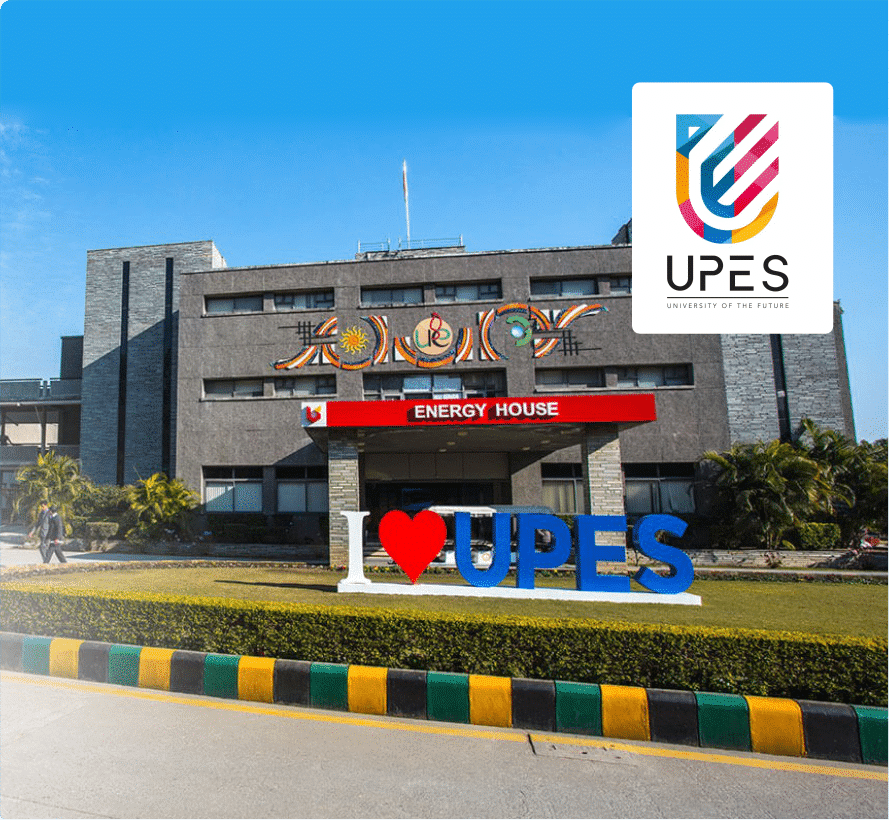
Online MBA vs Online MCom: Which is Best for Your Business Goals?
Online education has become popular for professionals and graduates to advance their careers without disrupting their daily routines. Among the many business-related degrees available, the Online MBA Degree Online MCom Degree are two of the most popular options. However, deciding between these two degrees can be challenging, especially when aiming to align your education with specific career goals.
This blog will help you explore the differences between an Online MBA and an Online MCom to determine which one best suits your business aspirations.
Online/Distance MBA Universities In Other Cities
What is an Online MBA?
What is an Online MCom?
Online MCom is a master degree. The course is designed for those looking to deepen their expertise in areas related to commerce and finance. The program focuses on fields like accounting, economics, taxation, and corporate finance. Online MCom duration is 2 years. Unlike an MBA, which is broader in scope, the MCom program is more specialized and research-oriented, making it ideal for students who wish to build a solid foundation in financial analysis and economic theory.
Key Differences Between Online MBA and Online MCom
Curriculum and Specializations
- MBA Specializations: Online MBA programs typically offer a variety of specializations, including Marketing, Finance, Operations, and Human Resource Management. These programs emphasize building management skills and strategic thinking to prepare students for leadership roles.
- MCom Specializations: MCom programs usually concentrate on areas like Accounting, Taxation, and Finance, delving deep into specific financial topics. This allows students to gain specialized knowledge relevant to roles in finance, auditing, and taxation.
- MBA Skills: As an MBA student, you’ll develop valuable leadership, networking, and problem-solving skills. This degree encourages a hands-on approach to real-world business issues and focuses on building soft skills like communication and team management.
- MCom Skills: MCom programs cultivate strong analytical, quantitative, and research abilities. This degree is well-suited for those who are interested in deepening their understanding of finance and accounting, equipping students with specialized knowledge that can be applied in various roles within finance departments.
- MBA Flexibility: MBA programs come in a variety of formats, including full-time, part-time, and executive MBA options. Many online MBAs offer self-paced or cohort-based study formats, allowing students to balance their studies with work and other commitments.
- MCom Flexibility: Online MCom programs often have structured courses with flexible study hours. They may also include internship opportunities and certifications for students interested in gaining additional qualifications.
Both MBA and MCom degrees are valuable, but it’s essential to choose a program from a UGC recognized university to ensure that your degree is recognized by employers. An MBA is more globally recognized, especially in the corporate world, while an MCom holds strong value in finance and academia.
Career Opportunities After Online MBA Degree
| Position | Role | Skills Required | Opportunities |
|---|---|---|---|
| Business Consultant | Advising companies on strategies to improve efficiency, profitability, and growth. | Analytical thinking, problem-solving, and strong communication. | Consulting firms, personal consultancy, or freelance services. |
| Project Manager | Overseeing projects from inception to completion, ensuring they meet objectives and stay within budget. | Leadership, organization, budgeting, and risk management. | IT, construction, healthcare, finance, and more industries. |
| Marketing Manager | Developing and implementing marketing strategies to promote products and services. | Market research, digital marketing, brand management, and customer insights. | Corporate marketing departments and advertising agencies. |
| Financial Manager | Managing the financial health of a company through reports, investments, and strategic planning. | Financial analysis, budgeting, forecasting, and risk management. | Banking, investment firms, corporate finance, and government organizations. |
| Operations Manager | Ensuring smooth and efficient operations with a focus on productivity and quality control. | Organizational management, process improvement, and resource management. | Manufacturing, retail, logistics, and healthcare sectors. |
| Human Resources Manager | Overseeing recruitment, training, employee relations, and organizational development. | Leadership, communication, negotiation, and conflict resolution. | Corporate HR departments, recruitment agencies, and consulting firms. |
Career Opportunities After Online MCom Degree Course
| Position | Role | Skills Required | Opportunities |
|---|---|---|---|
| Financial Analyst | Analyzing financial data, assessing investment opportunities, and providing recommendations for financial decisions. | Financial analysis, data interpretation, forecasting, and Excel proficiency. | Banks, investment firms, consulting companies, and corporate finance departments. |
| Accountant | Preparing and maintaining financial records, ensuring compliance with regulations, and handling tax-related tasks. | Accounting principles, attention to detail, tax knowledge, and analytical skills. | Public accounting firms, corporations, non-profits, and government agencies. |
| Tax Consultant | Advising individuals and businesses on tax matters, helping them minimize tax liability while staying compliant with tax laws. | Knowledge of tax regulations, analytical skills, attention to detail, and client management. | Tax consulting firms, financial advisory firms, or self-employment as a tax advisor. |
| Auditor | Examining financial records, ensuring accuracy and compliance, and providing recommendations for improving financial practices. | Attention to detail, knowledge of auditing standards, analytical skills, and report writing. | Internal auditing roles, accounting firms, or government auditor positions. |
| Investment Banker | Assisting companies with mergers, acquisitions, and raising capital by underwriting or issuing securities. | Financial modeling, business valuation, negotiation, and analytical skills. | Investment banking firms, financial services, and corporate finance departments. |
| Cost Accountant | Managing and analyzing cost expenditures, helping organizations reduce costs and optimize profitability. | Cost analysis, budgeting, financial reporting, and analytical skills. | Manufacturing companies, consulting firms, and corporate finance departments. |
Which One is Best for Your Business Goals
Moving Up in Your Career
If you aspire to take on leadership roles within a company, an MBA is likely the better option. The skills developed in an MBA program are widely applicable to managerial roles and can open doors to promotions and higher-level responsibilities in various industries.
Deepening Financial and Analytical Knowledge
For those interested in building a career in finance, accounting, or economics, an MCom provides more specialized training. This degree is ideal for individuals looking to become financial experts or to gain in-depth knowledge of commerce-related fields.
Entrepreneurial Aspirations
An MBA can also be valuable for aspiring entrepreneurs, as it covers the essentials of starting and managing a business, such as financial management, marketing, and strategy. Many MBA programs even offer entrepreneurship specializations or provide opportunities to work on real-world business projects.
Career Stability in Finance or Academia
If your goal is to have a stable career in finance or academia, an MCom degree may be the right choice. With an MCom, you’ll be well-prepared for positions like financial analyst or tax consultant, and the degree also serves as a stepping stone for further studies, such as a Ph.D., for those interested in teaching and research.
Top Online MBA Universities in India
| University | Fees (INR) |
|---|---|
| Jain Online | 40,000/- Per Semester |
| LPU Online (Lovely Professional University) | 43,000/- Per Semester |
| Online Manipal | 43,750/- Per Semester |
| Chandigarh University Online | 50,000/- Per Semester |
| Amity University Online | 48,750/- Per Semester |
| Sikkim Manipal University | 27,500/- Per Semester |
| DY Patil Online | 45,000/- Per Semester |
| UPES Online | 43,750/- Per Semester |
| Vivekananda Global University (VGU) | 32,500/- Per Semester |
| Vignan University Online | 27,500/- Per Semester |
| Shoolini University Online | 20,000/- Per Semester |
| Sharda University Online | 25,000/- Per Semester |
| Amrita University Online | 42,500/- Per Semester |
Top Online MCom Universities in India
| University | Fees (INR) |
|---|---|
| Jain Online | 26,250/- Per Semester |
| Online Manipal | 27,000/- Per Semester |
| LPU Online | 23,000/- Per Semester |
| Amity University Online | 30,000/- Per Semester |
| Amrita University Online | 22,500/- Per Semester |
| Sharda University Online | 17,500/- Per Semester |
Conclusion
Most Popular Blogs

Online BCA Courses in Jain University Online

Distance Education at Pondicherry University

Top 4 colleges to pursue Distance BBA in Andhra Pradesh

What are the top distance BSc colleges in Kerala

Know about the top 3 distance BCom universities in Madhya Pradesh



















